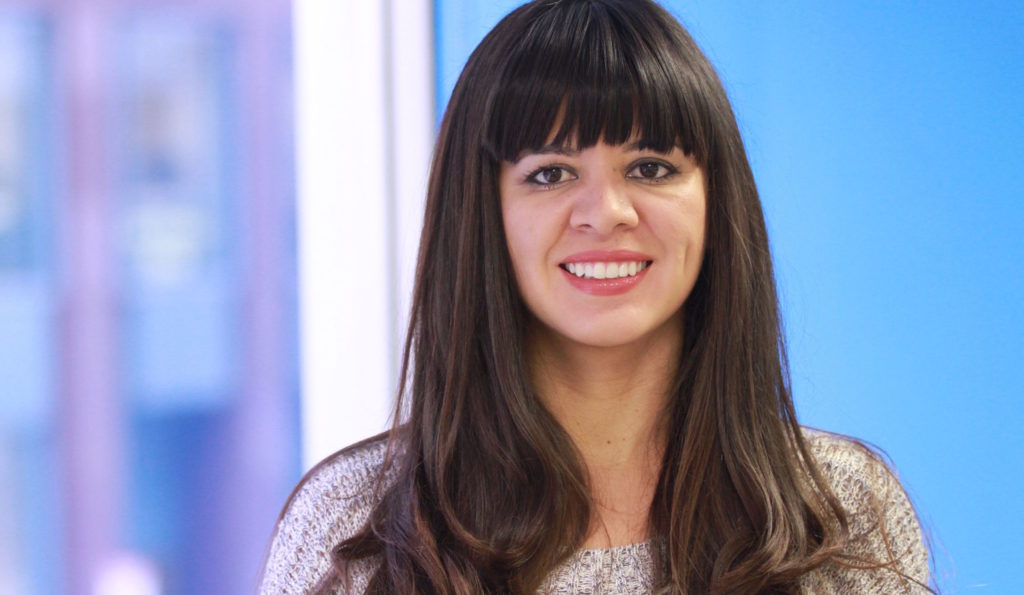
Laura Gómez’s journey to becoming one of leading voices of immigration, tech and workforce diversity is a beautiful one that teaches aspiring entrepreneurs the importance of the goal-oriented, altruistically driven hard work. Her passion and goals in business are dictated by a strong philosophy summed up best on her LinkedIn:
“Idealistic as it may sound, altruism should be the driving force in business, not just competition and a desire for wealth.”
Laura’s struggle began as an undocumented immigrant from Mexico when she moved to the US at the age of 10, during an international amnesty program. A victim of regular racial stereotyping, she was often an outsider, even though she grew up in liberal parts of Redwood City. It was this experience growing up, that shaped Laura’s desire to work for diversity and inclusion in the workforce & today also drives her activism to work for immigration reform.
Whereas the typical Silicon Valley success story may often involve someone changing from humanities to computer science, Laura’s journey went in the other direction. Having worked at HP at the age of 17, before even going to college, Laura was advised to go for EECS at Berkeley, but the desire to create change for women, as well as the feeling of being one of the only women in an overwhelming crowd of male computer science students drove Laura to pivot, and pursue Sociology, Latin American Studies and Development Studies at undergraduate and graduate levels. However, having stayed close to tech during her entire time pursuing such fields, Laura was able to come back to the Bay Area to merge her passion for change and her inner ‘Berkeley activism’ with her love of technology.
Laura ended up working at Twitter during its early stages, quickly climbing the ladders from an International Lead Support to the Head of Localization; as a founding member of Twitter’s international team, she was able to lead product development into 50+ languages in dozens of countries. Having contributed a similar experience at Jawbone, she was able to get a first-hand view of gender and ethnicity issues in the tech world, and decided that it was time to work on her own ventures – this is what gave birth to Atipica.
Atipica is a talent discovery engine that uniquely combines AI with human intelligence to allow companies to discover the value of the talent they’re hiring, based on recruiting data. Its mission, perhaps driven directly by Laura’s experiences of being outcast, is to “surface the unique person behind the resume by interpreting data through an empathetic lens.” This intelligence enables corporations to hunt qualified candidates and eliminate one of the largest faults of recruiting processes – the inherent bias of an individual recruiters. Seamless integration extracts data, automatically reviews individual profiles, matches candidates with companies, and factors in unique diversity and demographic models to create fair recruiting outcomes.
Launching a four-person software company, scaling, recruiting and finding customers is in itself a challenge; this aside, Laura also had to struggle with being a woman and an immigrant entrepreneur. Laura has often iterated how difficult it is to start a venture; “Two years ago, I wouldn’t have started a company,” she said. But in an environment where it’s easier to acquire consumers, in part because “people are talking a lot more about the business need for diversity” not only in the technology sector but also in other industries, Laura was encouraged to pursue her idea by a number of mentors.
Atipica was this past week, able to secure $2m in seed funding. Laura pointed out there were biases on the other side of raising money, and that in general, women entrepreneurs have to come a lot more prepared to the table. She associates the lack of funding received by women to not just people’s biases, but also to the sever lack of female entrepreneurs in general. Atipica’s funding round was led by True Ventures, and the company is now quick expanding – it has now also hired Mike Sela, who previously led SurveyMonkey’s machine learning and natural language processing teams, to be its CTO.
An interviewer’s decision making is hampered by 4 main types of biases – confirmation bias (when people create a hypothesis and look for ways to justify it), effective heuristic (judging suitability by visual clues such as tattoos, body weight), expectation anchor (bypassing proper investigation of a candidate’s background and relying on frivolous expectation anchors whereby favoritism of a candidate occurs), and intuition (making a judgement on a non-existent hunch or sixth sense). By acknowledging biases and deciphering pattern matching, Laura’s startup takes a giant, non-manual leap to addressing behavior that may damage other people’s professional and personal happiness.
Laura is currently also a founding member of Project Include, an open community working toward providing meaningful diversity and inclusion solutions for tech companies. She currently also serves on the board of Institute for Technology and Public Policy.
To read about other female entrepreneurs the SCET has connected with, click here.
